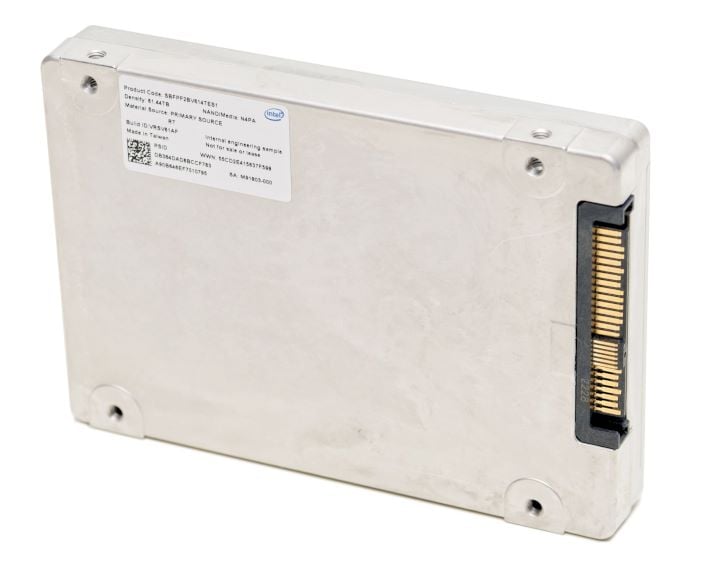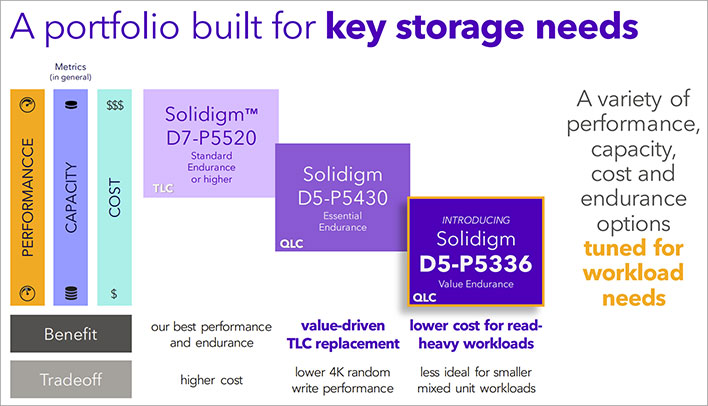Solidigm D5-P5336 SSD Review: Monster 61TB Data Center Storage
Solidigm D5-P5336 Review: Additional Benchmarks And Our Conclusion
EFD Software's HD Tune is described on the company's website thusly: "HD Tune is a hard disk utility with many functions. It can be used to measure the drive's performance, scan for errors, check the health status (S.M.A.R.T.), securely erase all data and much more." The latest version of the benchmark added temperature statistics and improved support for SSDs, among a few other updates and fixes.
HD Tune Pro v5.75: Bandwidth & Latency
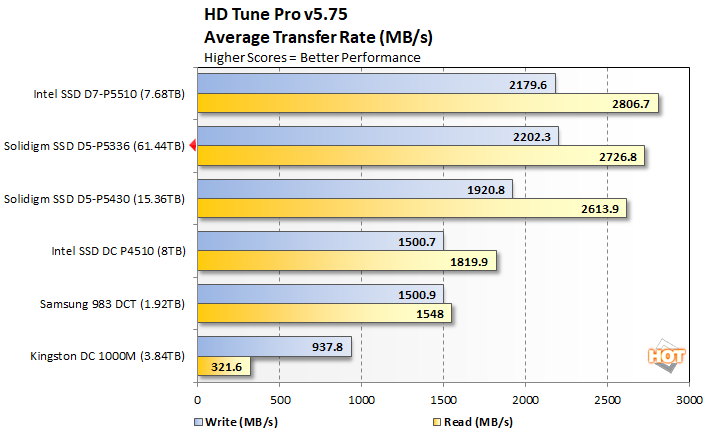
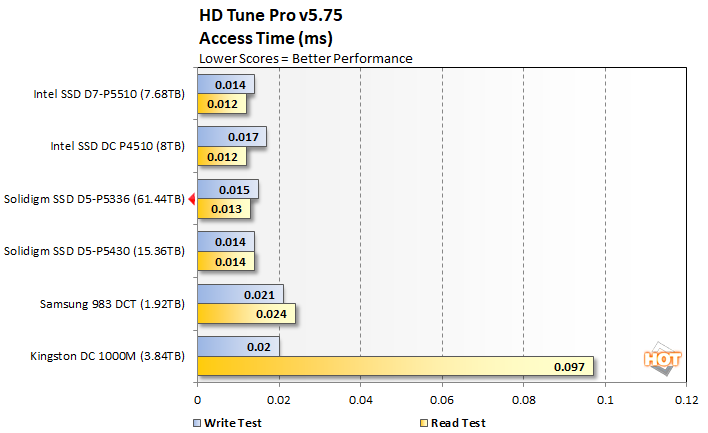
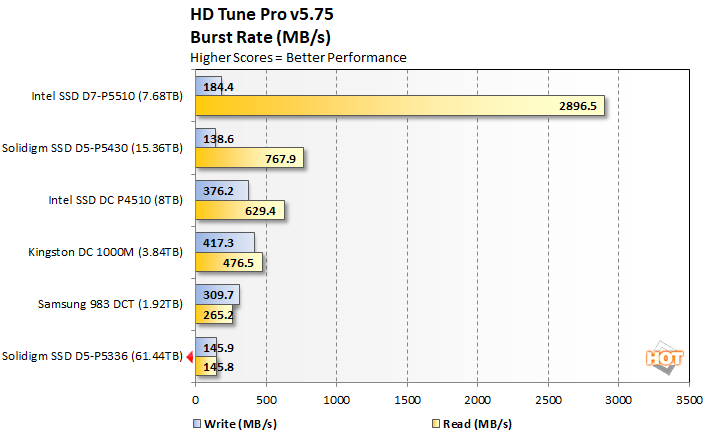
The Solidigm SSD D5-P5336 competes favorably with the other PCIe Gen 4 drives we tested, but it ultimately slots in just behind the D7-series in with both reads and writes. Latency is competitive as well, with results that compete favorably with other the PCIe Gen 4 drives.
CrystalDiskMark Storage Tests
CrystalDiskMark is a synthetic benchmark that tests both sequential and random small and mid-sized file transfers using incompressible data. It provides a quick look at best- and worst-case scenarios with regard to SSD performance, best case being larger sequential transfers and worse case being small, random transfers.
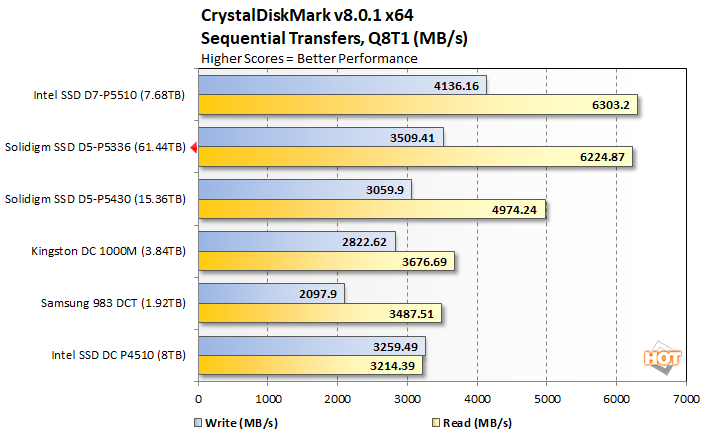
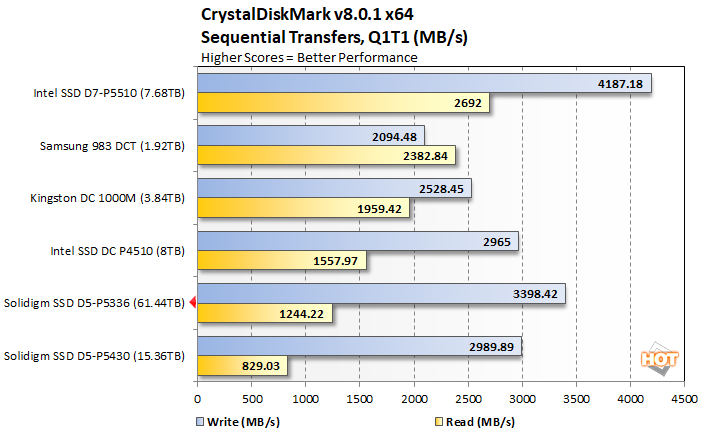
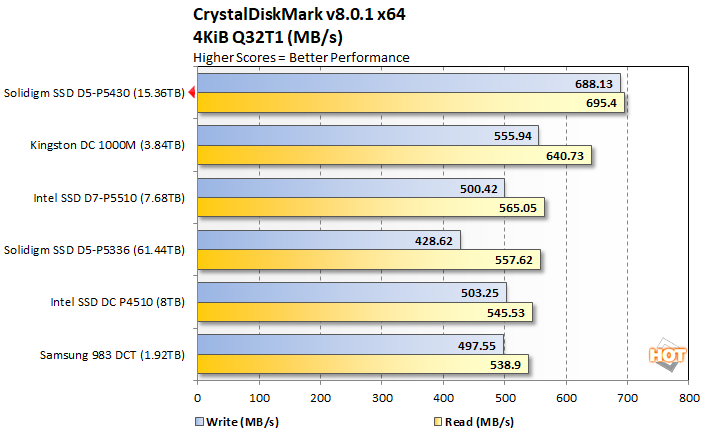
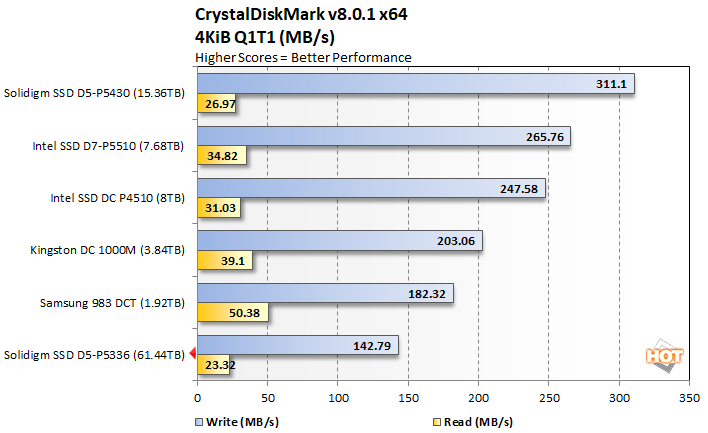
Latency Under Load
For this next set of tests, we measured access latency at various queue depths with the same fully random IOMeter 4K access pattern (67% reads, 33% writes) featured previously, but while each of the drives was also under a sustained sequential write workload. A sustained sequential write across the entire volume was initiated, and when performance plateaued, access latency was measured with IOMeter using the 4K fully random access pattern running concurrently.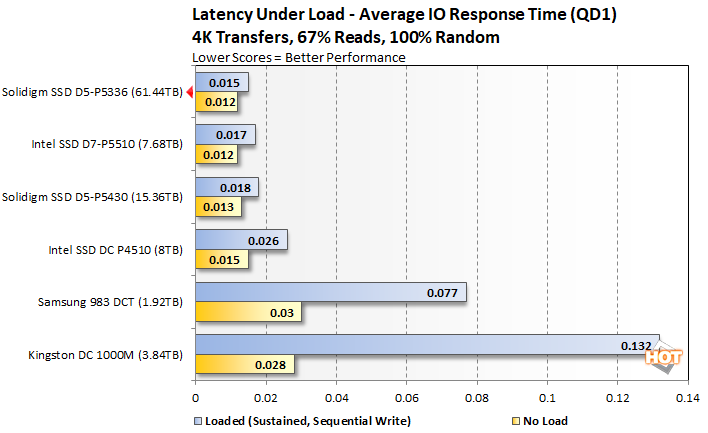
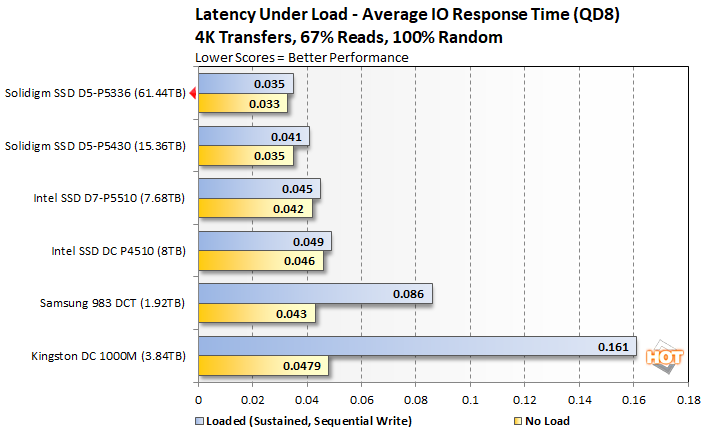
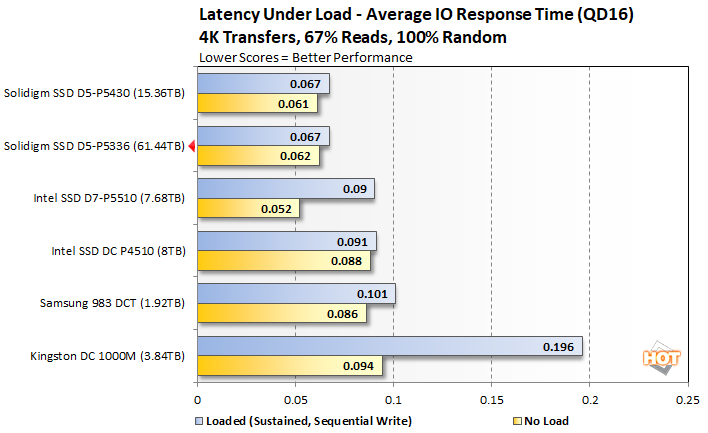
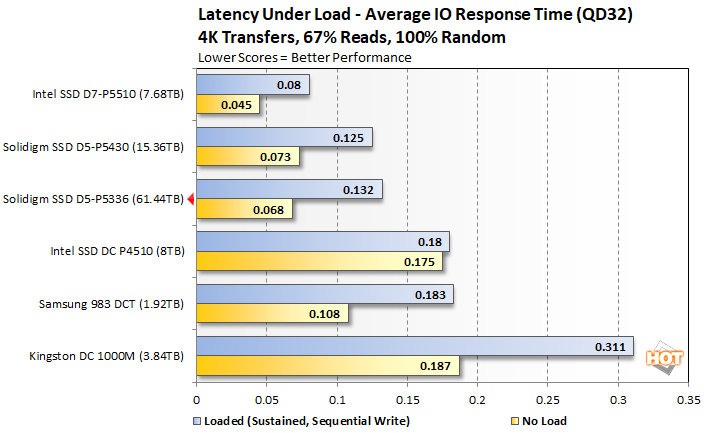
While under load, the Solidigm SSD D5-P5336's performance remains mostly consistent, with only a slight increase in latency under load. The Solidigm SSD D5-P5336 ends up leading at QD1 and QD8, but settles right in the mix with the other D7 and D5 series drives in the other tests.
Solidigm SSD D5-P5336 Summary And Conclusion:
Solidigm is positioning the SSD D5-P5336 as a lower-cost option for read-intensive workloads, and our tests seem to prove that out. The Solidigm SSD D5-P5336 competed well with the other PCIe Gen 4 drives in terms of reads, especially when placed under higher loads, with more modest overall write performance.The ultra-high-capacity Solidigm SSD D5-P5336 61.44TB drive we tested put up competitive numbers across the board, mostly in-line with its rated specifications. They haven't hit etailers just yet, so we couldn't check actual pricing, but Solidigm tells us they expect pricing to settle below D5-5316 series products of the same capacity. Solidigm D5-5316 drives can be found for approximately $0.08 - $0.10 per gigabyte as of today, which isn't much higher than some consumer-class drives currently on the market.
The Solidigm SSD D5-P5336 offers competitive overall performance in read-centric workloads, with solid latency characteristics, a good warranty, and what we expect to be competitive pricing, at a max capacity that currently can't be matched. Taking all of that into consideration, it's easy to recommend the Solidigm SSD D5-P5336, if it's the right drive for your storage environment.


